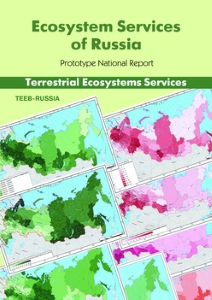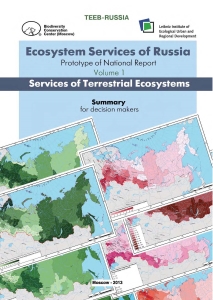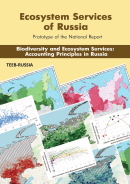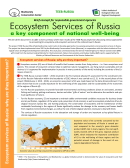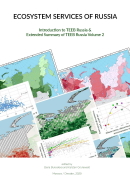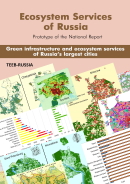|
|
The project “TEEB-Russia – Ecosystem Services Evaluation in Russia: First Steps” aims to develop a methodology for assessing ecosystem services (ES) and biodiversity of Russia. The project was initiated in 2013 by the Biodiversity Conservation Center (Moscow) in cooperation with the Leibniz Institute of Ecological Urban and Regional Development (Dresden) in accordance with the decision (of May 23, 2012) of the permanent Russian-German working group “Conservation of Nature and Biological Diversity”. The project is commissioned by the German Federal Agency for Nature Conservation (BfN) with funds from the German Federal Ministry for the Environment, Nature Conservation, and Nuclear Safety (BMU) and is also supported by the Ministry of Natural Resources and Environment of the Russian Federation.
TEEB-Russia 1 (2013–2016) Ecosystem services of terrestrial ecosystems of Russia: first steps In the first phase of the project (2013-2015), Volume 1 of the Prototype Report considering terrestrial ES was created. The following main results were obtained: – an ES classification adapted to Russian conditions was developed; – possible approaches to qualitative and quantitative evaluation of ES at the national level were demonstrated; – the most important ES of the Russian regions were assessed quantitatively in scientific indicators or were scored in terms of natural and socioeconomic factors that determine the supply and use of ES; – the regions were compared with respect to the balance of natural factors determining ES supply and socioeconomic factors determining ES use.
TEEB-Russia 2 (2018–2019) Assessment of biodiversity and ecosystem services in the Russian Federation - management principles and international processes The goal of the project is to assess the value of biodiversity and ecosystems of Russia for maintaining ES and to formulate principles for managing ecosystems of Russia. The main objectives of the project: – development of a methodological framework and a set of indicators of biodiversity and ES, taking into account international standards and the specifics of Russian conditions; – identification of the relationship between indicators of biodiversity and ES in model areas; – formation of proposals on the optimal management of biodiversity and ES at the national level.
The third volume of the Prototype of the National Report on Ecosystem Services of Russia presents the results of the assessment of urban green infrastructure and ecosystem services in the largest cities of Russia. Approaches to assessing green infrastructure and ecosystem services are proposed, taking into account the current state of the system for collecting statistical data on cities in Russia. The estimates were made for the largest cities of the Russian Federation with a population of more than 1 million people and for the city of Tyumen. For Moscow, estimates were also made at the intracity level - for municipalities. For the largest cities, ecosystem services were quantified in physical indicators, for the municipalities of Moscow, selected services were scored. The degree to which the ecosystem services are used and how people meet their needs was assessed based on a comparison of the volumes of services provided by green infrastructure and used by people. On the example of Moscow, the main problems of biodiversity conservation in large cities of Russia are considered.
|
